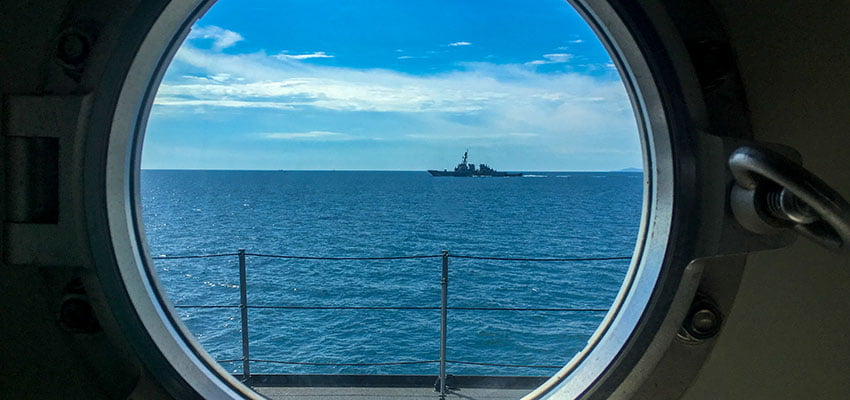THE frigate HMAS Perth underwent a substantial and costly capability upgrade and refurbishment in 2017, but it has been in dry-dock since due to the RAN inability to man the frigate.
Current predictions are the ship will continue to idle until 2021, giving it a total off-period of four years. In addition to the strategic handicap here is a substantial capital cost from the upgrading work performed, which is cumulative from year-to-year.
It brings forward the thought of what would happen to any CEO of a non-government listed or private company if they allowed substantial capital investments for upgrading any project without ensuring the manning and logistics would be in place for full utilisation after completion.
The Australian Strategy Policy Institute said the prolonged dry-docking was a particular current problem since it comes at a time when the Navy is expected to expand its regional activities in the Pacific and Indian Oceans and in Southeast Asia.
The Australian Defence Association executive director Neil James said the federal government dictates the manning levels to be funded.
Additional recruitment and training may provide long term solutions, but in the short term the ADF should be considering expanding the current practice of using Australian merchant seafarers in a range of auxiliary roles, including supply vessels, training ships and tankers.
I have been reliably informed that discussions between the RAN and the Australian seafarers associations (seamen, officers and engineers) have long ago settled on a mutually acceptable protocol setting down employment conditions and all associated matters.
Australian seafarers already have a proven track record of operating support vessels for the ADF. The Navy’s new aviation training vessel MV Sycamore has been successfully manned by civilian seafarers since 2016. Australian merchant seamen work on a range of support vessels providing government services from crewing AMSA emergency response vessels and a range of vessels for border protection. But this model has plenty of room for substantial expansion, allowing uniformed personnel to fill pressing crew shortages that are undermining the operational capabilities of the ADF.
The ADF could then immediately free up such Navy personnel to crew HMAS Perth (and any others) from auxiliary and support vessels with those roles being filled by highly skilled and experienced Australian seafarers. While the decline of the Australian merchant fleet has seen a huge loss of skills and experience from the Australian coastline, it does provide a unique opportunity for the RAN to put many more of those skilled and experienced seafarers to work.
My information is there is mutual enthusiasm for this strategy from both the RAN and the seafarers. It is to be hoped that there could be a bipartisan approach to this situation, when the concept is raised when the Parliament resumes. The issue involves national security, the waste of idle RAN resources and the social and economic benefits in using our civilian capacities.
The sequence of events could thus be:
- One: replace as many uniformed regular RAN staff from the type of vessels where merchant navy personnel can do the job.
- Two: Place the freed-up Navy staff on board the HMAS Perth, presumably mixed up with others from similar vessels, who can contribute to rapid training.
- Three: Equip the HMAS Perth for the full range of frigate capabilities, focussing on underwater attacks of every kind. From my own personal military navy experience I am aware of the practice of deploying intense training when a warship is in transit to its designated area of activity.
- Four: Despatch the HMAS Perth to assist with the protection of Australian fuel exports from the Gulf and other loading areas. Add additional RAN units as may be required to give maximum such protection in exposed regions.
It would have the huge benefit for Australian taxpayers seeing an expensively upgraded and very badly needed RAN unit being pulled out from its expected very expensive four-year idle exhibition as a kind of noveau museum piece and do what the RAN is supposed to do – protect Australian interests.
Surely, the recent attacks on six tankers in the Persian Gulf should produce enough encouragement for our government to become active and use the military assets to which it has been entrusted, to the fullest possible extent in the interest of our country.
Captain Harry Mansson AM

